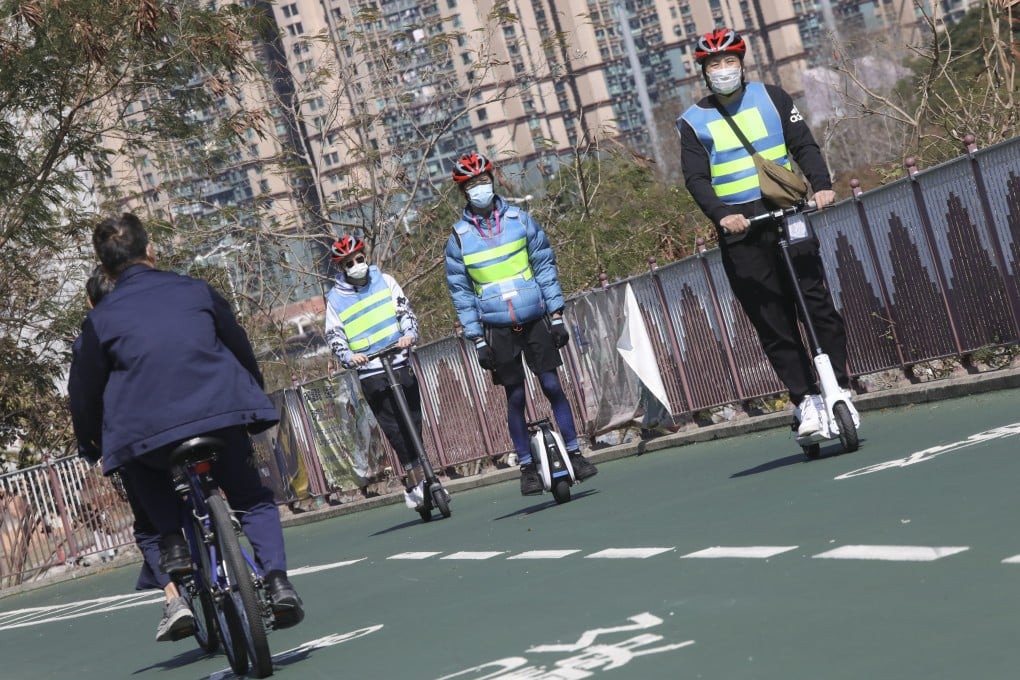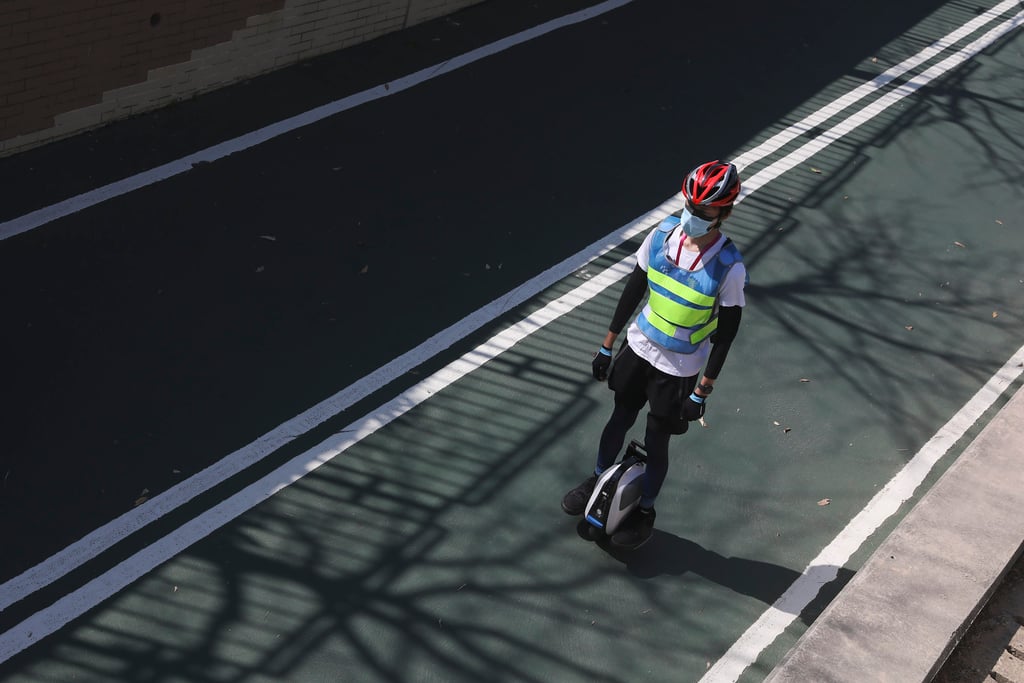Hong Kong set to give e-scooters the green light in trial scheme covering cycle tracks in 2 areas but speed limit will apply
- Authorities will allow electric scooters and bicycles on cycle tracks in Tseung Kwan O and Pak Shek Kok under a trial programme, Ringo Lee says
- Lee, an adviser on Transport Department committee, says devices must weigh less than 20kg with their width not exceeding 65cm

Hong Kong is set to give electric bicycles and scooters the green light for use on cycle tracks in Tseung Kwan O and Pak Shek Kok this year at the earliest but with a speed limit imposed, the Post has learned.
Electric scooters and hoverboards have gained popularity in recent years despite a ban of their use on carriageways, footpaths and cycle tracks under the Road Traffic Ordinance, with offences punishable by a HK$5,000 fine and three months’ jail.
Ringo Lee Yiu-pui, an adviser on the Transport Department’s electric mobility devices committee, on Sunday told the Post authorities would allow electric scooters and bicycles on cycle tracks in Tseung Kwan O and Pak Shek Kok under a trial programme with strict restrictions. But hoverboards will be excluded as they lack brakes.
Lee, president of the Hong Kong Automobile Association, said devices must weigh less than 20kg with their width not exceeding 65cm. Their speed must not exceed 25km/h.

They must also be equipped with a white front light, a red rear light, a red reflector, an effective braking system and an alarm warning device, while the battery must fulfil European Union safety standards because of the possibility of leakage, overheating and sparking a fire while charging.